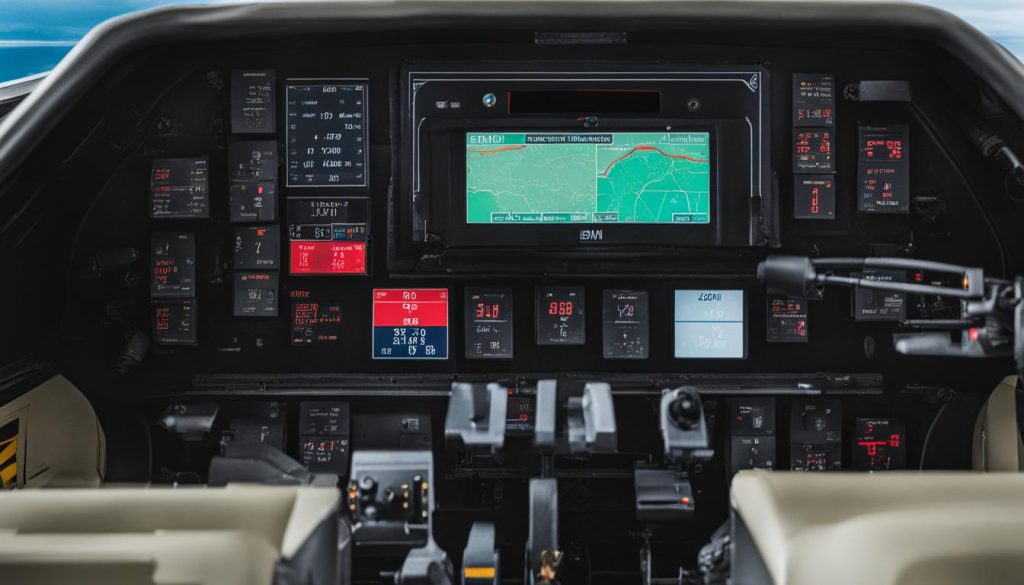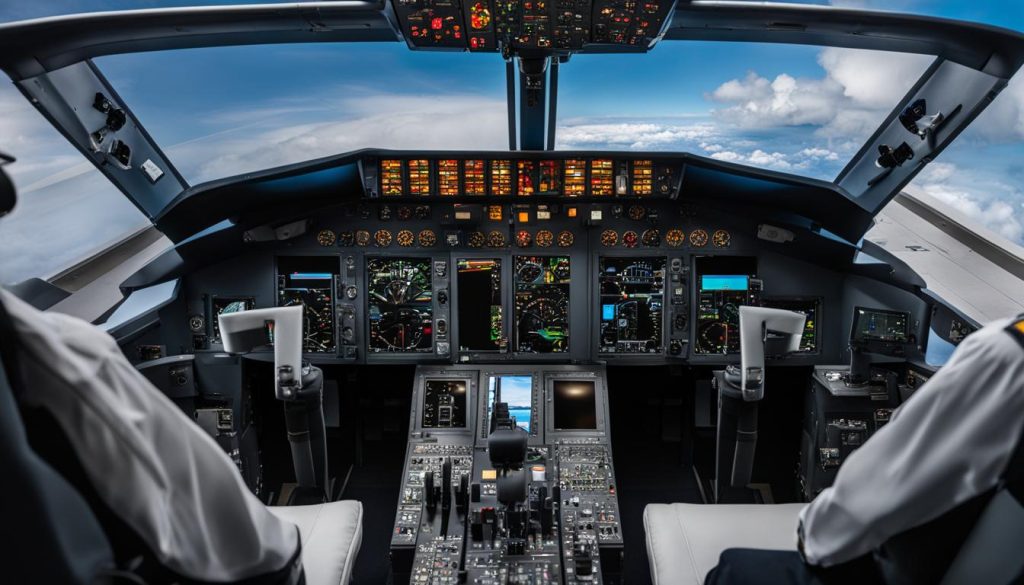Original publication date: December 14, 2023
Last Updated: 1 year
Author: Max Skyler
Topic: Flight Physiology
Number of Comments: 0
Subscribe to “Flight Following”, the official newsletter of PilotDiscovery.com.

Shop PilotsHQ for aviation gear, accessories, and more!

Sign up for PilotInsitute’s Private Pilot Online Ground School!
Maintaining a healthy BMI is a weighty subject (pun intended) in the field of aviation. Commercial pilots, in particular, may face the challenge of maintaining a healthy weight due to the sedentary nature of their profession. For all pilots, whether general aviation or commercial, excess weight not only affects their personal health but can also have implications for aviation safety. Understanding the regulations and guidelines set by the Federal Aviation Administration (FAA) regarding BMI and weight is crucial for pilots to ensure their own well-being and the safety of their passengers.
Key Points Covered In This Resource:
- Pilots often struggle with weight management due to the sedentary nature of their profession.
- Excessive weight can jeopardize both personal health and aviation safety.
- The FAA has established regulations and guidelines to ensure pilots maintain a healthy weight.
- Body Mass Index (BMI) is used as an indicator of a pilot’s health and fitness for flying.
- It is crucial for pilots to prioritize their health and well-being through weight management strategies.
The Impact of Excess Weight on Pilot Health
Excess weight is a prevalent health problem in the United States. Obesity has far-reaching health implications, increasing the risk of developing various diseases and disorders. Unfortunately, pilots, too, are not spared from the obesity pandemic.
The stereotype of pilots being slim and trim is unfortunately just that, a stereotype. The only thing that is slim and trim, is the airplane, not the pilot (pun intended).
Obesity-related diseases:
- Diabetes
- High blood pressure
- Cardiovascular diseases
- Stroke
- Certain types of cancer
In addition to these diseases, obesity can also lead to sleep apnea and reduced mental function. The negative health consequences of excess weight highlight the importance of pilots prioritizing their own well-being.
FAA Regulations on BMI and Weight
The Federal Aviation Administration (FAA) has established regulations and guidelines regarding pilots’ BMI and weight in order to ensure aviation safety. While there are no specific weight limits for pilots, the FAA emphasizes the importance of maintaining a healthy Body Mass Index (BMI) within an acceptable range. This is because BMI serves as an indicator of an individual’s overall health and can impact their ability to perform essential flight duties.
Pilots are required to undergo regular medical examinations, including assessments of BMI and weight, to obtain and maintain their medical certification. These examinations are crucial for assessing a pilot’s fitness to fly and identifying potential health risks associated with excess weight. Pilots who exceed certain BMI and weight thresholds may be subject to additional medical evaluations or restrictions in order to ensure their capability to operate aircraft safely.
The FAA’s focus on BMI and weight stems from the understanding that maintaining a healthy weight is essential for optimal pilot performance and aviation safety. By adhering to these regulations and guidelines, pilots can prioritize their own well-being and contribute to a safer and more efficient aviation environment for all.

| FAA Regulations and Guidelines | Key Points |
|---|---|
| Weight Limits | The FAA does not have specific weight limits for pilots, but emphasizes the importance of maintaining a healthy BMI within an acceptable range. |
| Medical Certification | Pilots are required to undergo regular medical examinations, including BMI and weight assessments, to obtain and maintain their medical certification. |
| Additional Evaluations or Restrictions | Pilots who exceed certain BMI and weight thresholds may undergo additional medical evaluations or face restrictions to ensure their fitness to fly. |
Understanding Body Mass Index (BMI)
Body Mass Index (BMI) is a commonly used measurement to assess a person’s weight in relation to their height. It provides a quick and easy way to determine if an individual is underweight, normal weight, overweight, or obese. BMI is calculated by dividing a person’s weight in kilograms by the square of their height in meters.
Formula:
BMI = weight (kg) / height2 (m2)
The resulting number is then compared to the standard BMI categories, which help classify a person’s weight status. These categories include:
- Underweight: BMI less than 18.5
- Normal weight: BMI between 18.5 and 24.9
- Overweight: BMI between 25 and 29.9
- Obese: BMI of 30 or higher
The Federal Aviation Administration (FAA) recognizes BMI as one of the indicators of a pilot’s health and fitness for flying. Pilots are required to maintain a healthy BMI within an acceptable range to ensure they are physically fit to perform their duties safely.
The Impact of Obesity on Aviation Safety
Any amount of excess weight, regardless of whether it falls under the classification of obesity, can have a significantly adverse impact on aviation safety. Pilots who are overweight or obese may experience reduced physical and cognitive abilities, which can affect their performance in the cockpit. The additional weight can lead to decreased agility and maneuverability, potentially impacting the pilot’s ability to handle the aircraft safely and effectively.
Furthermore, excess weight can also have an impact on aircraft performance. The increased load due to obesity may result in higher fuel consumption, reducing the aircraft’s range and efficiency. This can have financial implications for airlines and may even compromise the safety margins of the flight.
Moreover, obese individuals are at a higher risk of developing certain health conditions such as sleep apnea, which can further compromise pilot performance. Sleep apnea can cause fatigue and cognitive impairment, affecting a pilot’s alertness and decision-making abilities during critical phases of flight.

It is essential for pilots to recognize the impact of obesity on aviation safety and take proactive measures to manage their weight. By maintaining a healthy weight through regular exercise and a balanced diet, pilots can enhance their physical and cognitive abilities, ensuring they are in peak condition to safely operate an aircraft.
Flight operators and regulatory authorities also play a crucial role in promoting aviation safety. They can implement policies and programs that prioritize pilot well-being, including initiatives to raise awareness about the importance of weight management and resources to support pilots in achieving and maintaining a healthy weight.
Understanding the impact of obesity on aviation safety highlights the need for pilots to prioritize their weight management. By maintaining a healthy weight, pilots can optimize their performance, enhance aviation safety, and contribute to a safer and more efficient aviation industry as a whole.
Health Risks of Obesity and Weight-related Conditions
Obesity poses significant health risks that can impact pilots’ overall well-being and their ability to carry out their duties safely. Researchers have established a clear link between obesity and a range of obesity-related diseases, including diabetes, cardiovascular diseases, high blood pressure, and stroke.
One of the most common obesity-related diseases is diabetes. The excess weight increases the risk of developing type 2 diabetes, which can have detrimental effects on a pilot’s health and performance. Diabetes affects blood sugar levels and can lead to complications such as nerve damage, kidney disease, and even blindness.
Cardiovascular diseases, including heart disease and stroke, are also strongly associated with obesity. Excess weight can contribute to high blood pressure, unhealthy cholesterol levels, and the build-up of plaque in the arteries. These factors increase the risk of heart attacks, heart failure, and other cardiovascular events.
Furthermore, obesity can have a negative impact on a pilot’s mental health and cognitive function. Research indicates that obese individuals may experience reduced mental agility, memory problems, and difficulty concentrating, which can impair their judgment and decision-making capabilities in the cockpit.
It is crucial for pilots who are overweight or obese to be aware of the health risks associated with excess weight. Taking proactive measures to manage weight through lifestyle changes, such as adopting a healthier diet and engaging in regular exercise, can significantly reduce the risk of obesity-related diseases and improve overall well-being. Seeking guidance from healthcare professionals, including nutritionists and fitness experts, can also provide valuable support in maintaining a healthy weight.
Weight Management Strategies for Pilots
Pilots can adopt various strategies to manage their weight effectively. Maintaining a healthy weight is essential for their overall well-being and performance in the cockpit. By prioritizing weight management, pilots can enhance their physical and cognitive abilities, ensuring a safer aviation environment for themselves and their passengers.
One key aspect of effective weight management is adopting a balanced and nutritious diet. Pilots should aim to consume a variety of foods from different food groups, including fruits, vegetables, whole grains, lean proteins, and healthy fats. This helps provide essential nutrients while maintaining a proper energy balance.
Regular physical activity is another crucial component of weight management. Pilots should incorporate exercise into their daily routine, focusing on activities that they enjoy and that suit their lifestyle. This can include aerobic exercises like walking, jogging, or cycling, as well as strength training exercises to build muscle and improve overall fitness.
Additionally, maintaining a healthy lifestyle plays a fundamental role in weight management. This involves getting enough sleep to support the body’s natural processes and promote overall well-being. It also includes managing stress effectively through techniques like meditation, deep breathing, or engaging in hobbies and activities that help relax the mind.
Working with healthcare professionals, such as nutritionists and fitness experts, can provide pilots with personalized guidance and support in managing their weight. These professionals can develop individualized plans tailored to each pilot’s unique needs and circumstances, helping them make sustainable lifestyle changes that promote weight loss or maintenance.
By adopting these weight management strategies, pilots can prioritize their health and well-being, ensuring they can perform at their best while maintaining a healthy weight. Effective weight management not only contributes to the personal well-being of pilots but also plays a vital role in aviation safety.
The FAA Weighs In On The Use of Weight Loss Medication
If you are sufficiently obese to the point where your doctor has prescribed you medication to facilitate your weight loss, your use of this medication must be disclosed to the Aviation Medical Examiner (AME) who is responsible for issuing you the medical certificate required in order for you to be cleared to fly.
Because medication can induce side effects which can compromise your ability to safely conduct a flight, the FAA has issued guidance to AMEs on how to evaluate pilots, based on their medication regimen.
This guidance is based on the Federal Aviation Regulations (FARs) for first class (FAR 67.113), second class (FAR 67.213), and third class (FAR 67.313) medical certificates, respectively.
AMEs must follow the evaluation criteria as published by the FAA, in order to make a decision as to whether to issue pilots the medical certificate needed in order to fly
Benefits of Weight Management for Pilots
| Benefits | Explanation |
|---|---|
| Improved physical and cognitive abilities | Maintaining a healthy weight enhances pilots’ physical and cognitive abilities, allowing them to perform their duties effectively in the cockpit. |
| Reduced risk of obesity-related diseases | Weight management helps reduce the risk of developing obesity-related diseases such as diabetes, cardiovascular diseases, and high blood pressure. |
| Enhanced aircraft performance | Excess weight can lead to increased fuel consumption and decreased aircraft performance. By managing their weight, pilots can contribute to improved fuel efficiency and overall aircraft performance. |
| Improved mental well-being | Maintaining a healthy weight positively impacts mental well-being, reducing the risk of stress and improving overall mood and cognitive function. |
Resources for Pilots in Weight Management
Pilots facing the challenge of managing their weight have access to an array of resources and support networks to assist them in their weight management journey. These resources can provide guidance, tools, and a supportive environment for pilots to maintain a healthy weight and prioritize their well-being. Let’s explore some of these valuable resources:
Aviation Medical Examiners (AMEs)
Aviation Medical Examiners (AMEs) play a vital role in ensuring pilots’ health and fitness to fly. They conduct medical examinations to assess pilots’ overall health, including weight management. AMEs are knowledgeable about the specific requirements and guidelines set by the Federal Aviation Administration (FAA) regarding BMI and weight for pilots. Pilots can rely on their expertise to guide them in understanding and meeting these requirements. By consulting AMEs, pilots can receive personalized recommendations and guidance tailored to their individual needs.
Weight Loss Programs for Pilots
Specifically designed weight loss programs for pilots offer a targeted approach to weight management, considering the unique challenges and requirements of the profession. These programs take into account the sedentary nature of the job and provide pilots with tailored strategies to lose and maintain weight effectively. With the guidance of healthcare professionals and weight loss experts, pilots can access evidence-based programs that encompass nutrition, exercise, and lifestyle modifications. These programs not only focus on achieving weight loss but also emphasize long-term weight management and sustainable lifestyle changes.
The FAA has provided guidance on proper diet and nutrition for weight management.
Support Networks
Building a support network is crucial for successful weight management. Pilots can benefit from connecting with fellow professionals who understand the unique challenges they face in maintaining a healthy weight. Online communities, forums, and social media groups can provide a platform for pilots to share experiences, seek advice, and find motivation. Support networks can also include friends, family, or healthcare professionals who can offer encouragement and accountability throughout the weight management journey.
Engaging with these resources, such as aviation medical examiners, weight loss programs, and support networks, can provide pilots with the necessary tools, guidance, and encouragement to manage their weight effectively. By utilizing these resources, pilots can prioritize their health and well-being while ensuring a safer and more productive career in aviation.
The Importance of Addressing Excess Weight
Addressing excess weight is of utmost importance for both the personal health and well-being of pilots and the overall aviation safety. Maintaining a healthy weight not only benefits pilots themselves but also enhances their physical and cognitive abilities to effectively carry out their duties and ensure the safety of their passengers.
Pilots who prioritize weight management can contribute significantly to creating a safer and more efficient aviation environment. By adopting effective weight management strategies, pilots can optimize their performance and minimize the potential risks associated with excess weight.
Enhancing Pilot Health
Maintaining a healthy weight is essential for pilot health and vitality. By managing their weight effectively, pilots can reduce the risk of obesity-related diseases, such as diabetes, cardiovascular diseases, and high blood pressure. This, in turn, allows pilots to perform their duties with optimal physical and mental well-being, ensuring their own long-term health and wellness.
Promoting Aviation Safety
Aviation safety is paramount, and excess weight can have a detrimental impact on it. Pilots who are within a healthy weight range can exhibit improved physical agility and cognitive function, enabling them to respond quicker and more effectively to any unforeseen circumstances or emergencies during flight. This enhances situational awareness, reduces potential safety hazards, and promotes a safer aviation environment for all.
Contributing to Efficiency
Weight management plays a crucial role in optimizing aircraft performance. Excess weight increases fuel consumption and compromises an aircraft’s ability to achieve optimal speed, maneuverability, and efficiency. By maintaining a healthy weight, pilots contribute to lower fuel costs, reduced carbon emissions, and improved overall flight efficiency.
Addressing excess weight is not only a matter of personal health but is an integral part of ensuring aviation safety and operational efficiency. By recognizing the significance of weight management, pilots can actively contribute to the well-being of themselves, their passengers, and the aviation industry as a whole.
Conclusion
Clearing the air on BMI and weight regulations for pilots is essential for understanding the importance of weight management in the aviation industry. Pilots must prioritize their health and well-being by adopting effective weight management strategies, seeking support from healthcare professionals, and staying informed about FAA guidelines.
By maintaining a healthy weight, pilots can enhance their performance and contribute to a safer aviation environment for all. Excess weight, especially obesity, can have significant implications for aviation safety, affecting both the physical and cognitive abilities of pilots. Understanding the negative health consequences of excess weight, such as obesity-related diseases, emphasizes the need for pilots to manage their weight effectively.
Through the use of resources such as aviation medical examiners and specialized weight loss programs, pilots have access to the tools and support necessary for maintaining a healthy weight. Prioritizing weight management not only ensures pilots’ personal well-being but also contributes to the safety and efficiency of the aviation industry as a whole.
FAQ
Are there specific weight limits for pilots set by the FAA?
No, the FAA does not have specific weight limits for pilots. However, pilots are required to maintain a healthy BMI within an acceptable range.
How does the FAA assess a pilot’s BMI and weight?
Pilots are required to undergo regular medical examinations, which include assessments of BMI and weight.
What happens if a pilot exceeds the BMI and weight thresholds?
Pilots who exceed certain BMI and weight thresholds may be subject to additional medical evaluations or restrictions.
How is Body Mass Index (BMI) calculated?
BMI is calculated by dividing a person’s weight in kilograms by the square of their height in meters.
Why is maintaining a healthy weight important for pilots?
Excess weight, especially obesity, can affect a pilot’s physical and cognitive abilities, as well as aircraft performance, posing risks to aviation safety.
What are the health risks associated with obesity?
Obesity is associated with an increased risk of developing diabetes, cardiovascular diseases, high blood pressure, stroke, and certain types of cancer.
How can pilots effectively manage their weight?
Pilots can adopt strategies such as a balanced diet, regular physical activity, and a healthy lifestyle. Working with healthcare professionals can provide personalized guidance and support.
What resources are available for pilots in weight management?
Aviation medical examiners play a vital role in assessing pilots’ health and providing guidance. There are also weight loss programs designed specifically for pilots and support networks.
Why is addressing excess weight important for pilots and aviation safety?
Maintaining a healthy weight enhances pilots’ performance and contributes to a safer aviation environment by ensuring their physical and cognitive abilities are not compromised.





